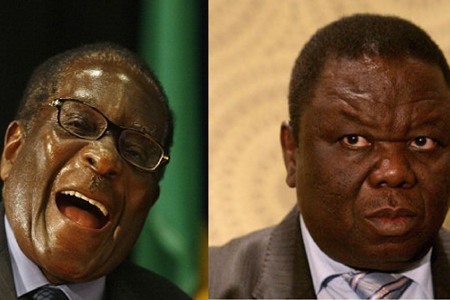
Childhood experiences of working with parents or relatives in the fields in rural or even in urban areas, have taught many people one of the most important lessons in life: Never to look back.
Sunday Opinion with Tondrai Matonho
But to look ahead at what is still to be done, regardless of the acres or distances to be covered.
Now that the blame-game within government circles has since become a thing of the past, leaders in politics and business should simply look ahead and believe in themselves and strive to work together harmoniously.
The recent calls by the government to engage the private sector is most welcome and long overdue. The team of CEOs from the private sector that toured European Union countries just recently should be quickly engaged.
Across the political divide, the “shadow cabinet system” being practised by the MDC-T is very popular across the world and the current government, largely run by Zanu PF, should learn to tolerate it. The country is currently bleeding and requires alternative voices to provide checks and balances.
To date, cases of corruption are being brought to the fore and this is highly commendable. This indicates that levels of serious commitment are rising, especially to look ahead and draw lessons from the past.
Sociologists assert that the past is to be learned from, but not continuously lived in.
- Chamisa under fire over US$120K donation
- Mavhunga puts DeMbare into Chibuku quarterfinals
- Pension funds bet on Cabora Bassa oilfields
- Councils defy govt fire tender directive
Keep Reading
Leaders, whether in politics or business, look back to claim the embers from glowing experiences but not the ashes. When they have learned what they need to learn and have brought along with them the best that they have experienced, they look ahead and remember that providing opportunities for the present is also preparing for posterity.
A characteristic clearly noticeable throughout Zimbabwe’s history is the pursuit by the government and to some extent the business sector of policies and misplaced priorities, contrary to the country’s interests.
President Robert Mugabe, stuck to the helm of power since 1980, has arguably performed dismally and the results have largely affected the business sector as well, especially when one looks at the shoddy operations of the parastatals.
Why do leaders of high office so often act contrary to the way reason points and enlighted collective interests suggest? Why do intelligent and cognitive mental processes seem so often not to function? In normal democratic societies, when the term of office of a president or chief executive officer, comes to an end, whether in five or 10 years, he or she joyfully accepts his end-of-term break.
Such incumbents are not overshadowed by previous leadership exploits, nor do they look back and think that they had not had enough of power. They know that they rightfully laid the foundation of a great work with a clear vision that such efforts would bless the present and posterity.
There is no running away from the simple truth that leaders in politics and business in this country have largely contributed to the running down of the country.
Zimbabwe has been heavily de-industrialised instead of gaining increased and high industrial growth over the decades. Past experiences have shown that numerous economic blueprints, including the latest Zim Asset, have done little to improve the economy.
Therefore, the recent calls to improve working relations with the private sector must be taken seriously by the government.
As leaders look ahead given such encouraging gestures, there is need for effective team-work and political will to prevail. This will hasten the development and growth of the country.
It is an open secret that leaders in politics and business, have not always worked together effectively. They were or are still too much interested in aspirations for personal honours and success and show too little interest in the common goal of building the country.
Some attempts have been made, starting with Plato’s proposal of selecting a class to be trained as professionals in government.
According to his plan, the ruling class in a democratic society should be women and men apprenticed to the art of ruling, drawn from the rational and wise. Since he recognised that in natural distribution these are few, he believed they would have to be “eugenically bred and nurtured”.
Obviously, this would require some form of secondary and higher education to begin with. Can the Joseph Chinotimbas’ of this world find space here?
Plato and other scholars of his time existed more than 2 500 years ago, but they knew that government business itself is a special art in which competence, as in any other profession, could be acquired only by study of the discipline and could not be acquired otherwise. Let the leaders take heed and look ahead with confidence.











